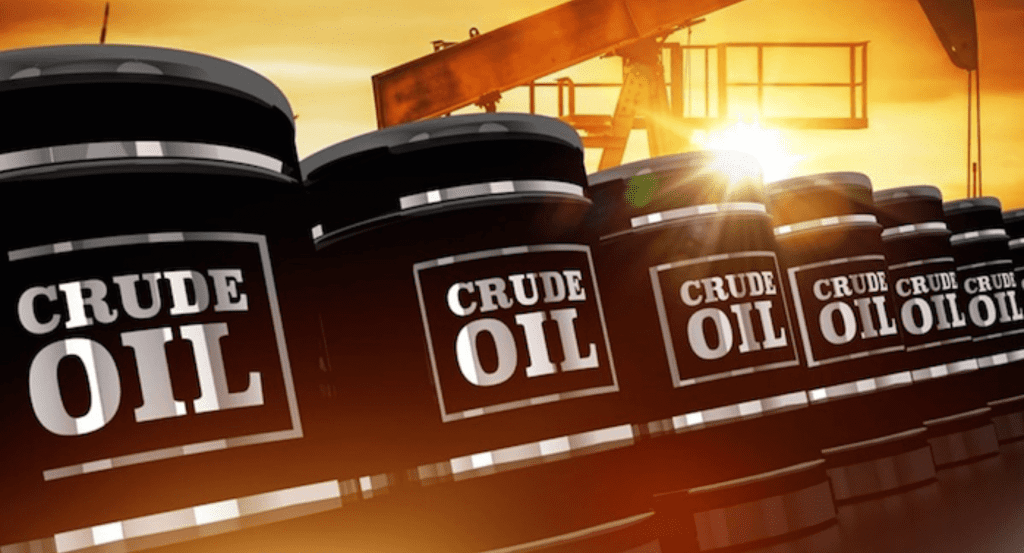Crude oil prices have surged sharply after U.S. President Donald Trump introduced a 25% tariff on nations buying Venezuelan oil. The move, announced earlier this week, has sparked volatility in global markets as traders anticipate a potential decline in crude supply.
With the United States tightening sanctions against Venezuela, analysts warn of further disruptions in the global oil market. The new policy not only affects Venezuela’s primary buyers, including China, India, and some European countries, but also raises concerns over long-term energy security.
Market Reacts as Crude Oil Prices Climb
Investors and traders have responded swiftly to the tariff announcement, causing Brent crude futures to rise above $73 per barrel, while West Texas Intermediate (WTI) climbed to $69.26 as of Wednesday morning. The increase comes just days after crude prices experienced a decline, showing how sensitive the market is to U.S. trade policies.
The White House’s latest decision has particularly affected China, which accounts for 55% of Venezuela’s crude exports, estimated at 500,000 barrels per day. With the new tariffs in place, major buyers may have to seek alternative suppliers, further straining global crude supplies.
Trump’s Sanctions and the Impact on Global Crude Oil Prices
The U.S. Treasury Department’s sanctions on Venezuela are designed to cut off revenue to President Nicolás Maduro’s government. Trump’s latest move aligns with Washington’s broader strategy of exerting economic pressure on Venezuela, which has long been at odds with the United States over governance issues and human rights concerns.
In an unexpected twist, Chevron—the last major U.S. oil company operating in Venezuela—was granted a one-month extension to wind down its activities in the country. The Treasury Department had initially given Chevron until March 4 to exit, but the new deadline has now been pushed to May 27.
With Venezuela facing tighter restrictions, analysts believe that crude oil prices could remain elevated in the coming weeks, especially if other geopolitical factors—such as OPEC’s production decisions and ongoing tensions in Eastern Europe—further complicate supply chains.
DON’T MISS THIS: Nigeria’s Foreign Trade via Maritime Surges 91% to N130.8 Trillion in 2024
How the Tariffs Could Backfire on Trump’s Energy Strategy
Trump has long urged the Organisation of the Petroleum Exporting Countries (OPEC) to lower crude oil prices, arguing that high energy costs contribute to inflation and global instability. However, his latest decision contradicts this stance, as tariffs on Venezuelan oil could lead to higher prices rather than lower ones.
By imposing steep tariffs on Venezuela’s crude exports, the U.S. risks reducing supply from one of the world’s largest oil producers, inadvertently pushing prices higher. This policy shift could drive up fuel costs for American consumers, an outcome that may become a major political issue as the 2025 presidential elections draw closer.
China and Other Buyers Seek Alternatives Amid Rising Crude Oil Prices
China, Venezuela’s largest crude buyer, has been exploring alternative energy sources to lessen its dependence on U.S.-controlled oil markets. While China could attempt to bypass the tariffs through intermediaries, the risk of secondary U.S. sanctions may discourage many global refiners from dealing with Venezuelan crude.
Other potential buyers, including India and some European nations, may also have to reconsider their purchasing strategies. With the global oil market already facing supply constraints due to ongoing geopolitical tensions, the loss of Venezuelan barrels could push prices even higher.
Meanwhile, OPEC and its allies, including Russia, may respond by adjusting their production levels. If OPEC members decide to increase output, it could stabilize crude oil prices in the short term. However, long-term uncertainty remains a major concern.
Chevron’s Operations in Venezuela Face Uncertainty
As Washington tightens its grip on Venezuela’s economy, Chevron’s future in the country remains unclear. The company had previously received a special license from the U.S. Treasury Department in 2022, allowing it to continue exporting Venezuelan oil to the United States despite broader sanctions.
Trump’s new tariffs, however, put additional pressure on Chevron to reconsider its involvement in Venezuela. The extension granted until May 27 offers some temporary relief, but the company must navigate growing political risks and potential operational disruptions.
Political and Economic Ramifications of Trump’s Tariffs
Beyond the immediate impact on crude oil prices, Trump’s decision could have far-reaching consequences for U.S.-Venezuela relations and the global energy market. The move is likely to:
- Increase tensions between the U.S. and China, which relies heavily on Venezuelan oil.
- Strain Washington’s ties with Latin American countries, especially those that oppose unilateral economic sanctions.
- Create uncertainty for oil-dependent economies, as major energy importers adjust their strategies.
Additionally, Trump’s assertion that Venezuela has sent “tens of thousands” of violent individuals to the U.S. adds another layer of controversy to the decision. This statement, widely criticized by human rights organizations, underscores the political motivations behind the tariff announcement.
Will Crude Oil Prices Continue to Rise?
With crude oil prices climbing in response to Trump’s tariffs, the market now awaits further developments. The key factors influencing future price trends include:
- How China and other major buyers react to the tariffs.
- OPEC’s response—whether it increases or maintains production levels.
- Potential diplomatic negotiations that could alter U.S.-Venezuela relations.
- The global economic outlook and how oil demand fluctuates in the coming months.
If the tariffs remain in place, global crude oil prices could remain elevated, impacting fuel costs worldwide. However, a potential policy reversal or new trade agreements could ease tensions and stabilize the market.
Conclusion
President Trump’s tariffs on Venezuelan oil buyers have triggered a surge in crude oil prices, shaking up the global energy market. While the move is intended to pressure President Nicolás Maduro’s government, it has also created uncertainty for major oil importers and U.S. energy firms like Chevron.
As crude oil prices remain volatile, industry experts and policymakers will be closely monitoring how the situation unfolds. Whether these tariffs will achieve their intended political goals—or simply drive energy costs higher—remains to be seen.























